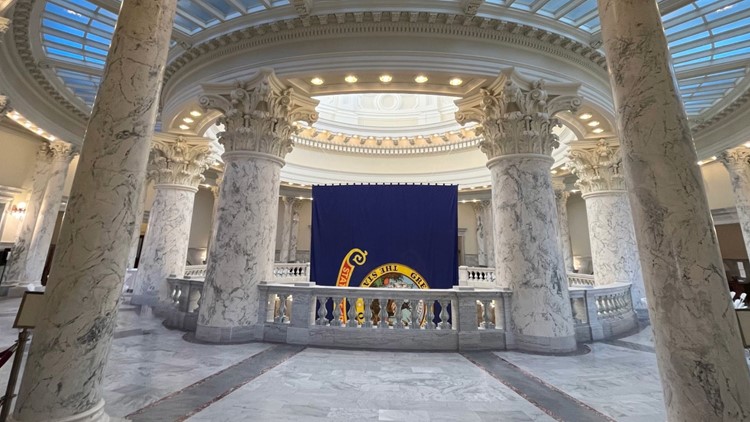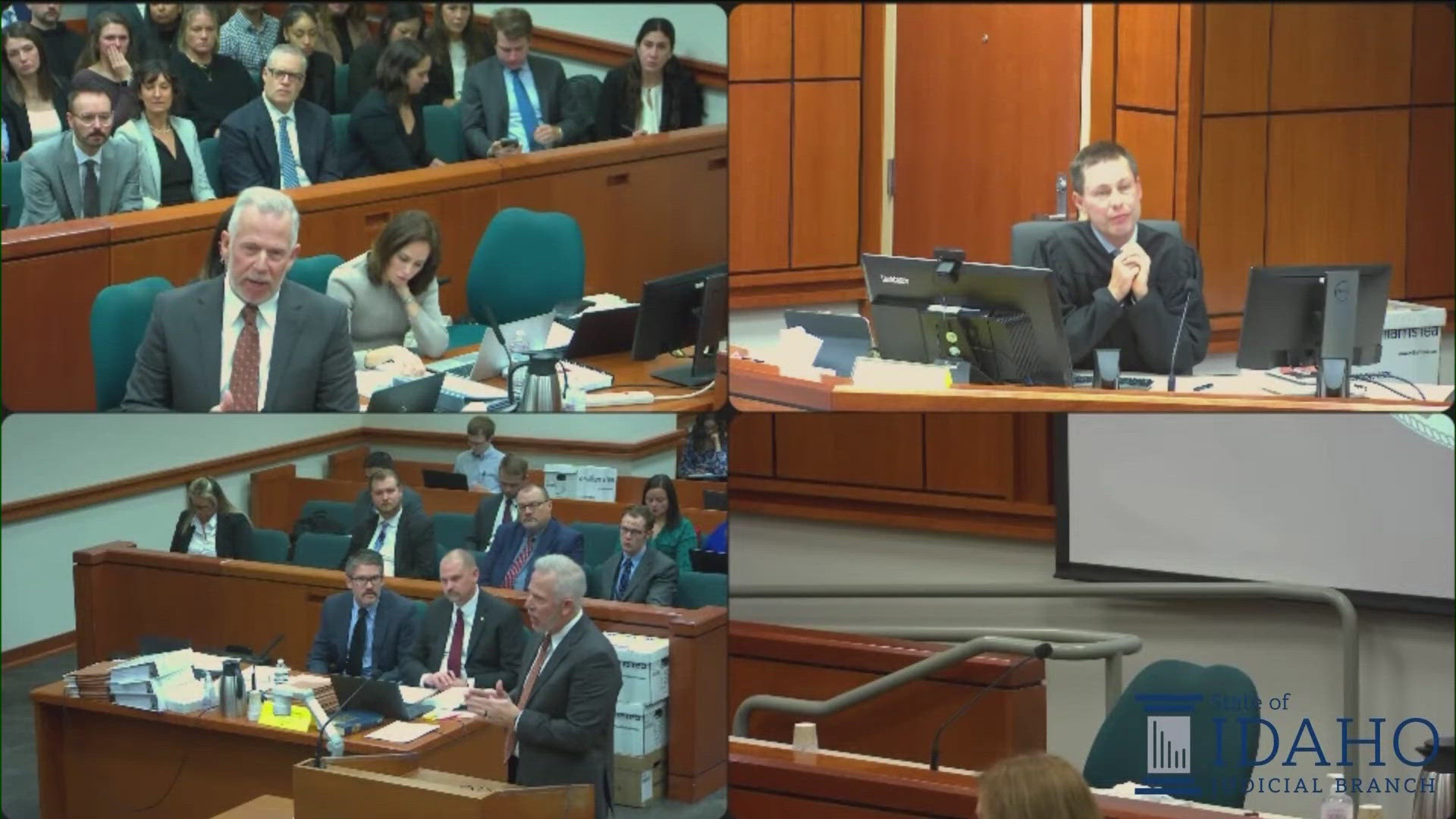BOISE, Idaho — A resolution to amend the Idaho Constitution regarding voter initiatives was met with major pushback Wednesday morning in the Senate State Affairs Committee -- and after over two hours of testimony, the resolution was sent back to committee to be amended rather than making its way to the floor.
The resolution, SJR 101, was brought up by Sen. Doug Okuniewicz, R-Hayden. It would require initiative backers to gather signatures from 6% of registered voters in each of Idaho's 35 legislative districts in order for an initiative to qualify for the ballot. The percentage would be based on the number of registered voters for the most recent general election. Currently, signatures from 6% of a district's registered voters are required in just 18 of the 35 districts.
If SJR 101 passes in the House and Senate, the proposed constitutional amendment would be up for a statewide vote in the next general election.
"The Joint Resolution will eliminate the current practice of “venue shopping” by well-funded activist organizations. For example, under the current system, it is possible to acquire more than one half of the total number of signatures required to place a question on the ballot from a single legislative district," the statement of purpose states.
The assertion in the statement of purpose about it being possible to gather more than half the total number of required signatures from a single district is correct, but it is not as simple as it may sound. The number of signatures required under Idaho law is equal to or greater than 6% of the state's total number of registered voters, but the law also requires signatures of at least 6% of an individual district's registered voters to be gathered from each of at least 18 legislative districts. Based on 2022 Idaho voter registration numbers, even if a majority of the required total number of signatures was gathered in one district, more than 1,700 signatures would need to be collected in each of at least 17 other districts.
In the committee meeting, Sen. Okuniewicz said "everyone would have input in the process" instead of one area. He said "we want to be inclusive" because it comes down to "urban versus rural areas."
This was done before, however -- Gov. Brad Little in 2021 signed a law requiring signatures from all 35 of the state's legislative districts, but it was later overturned by Idaho's Supreme Court.
The resolution introduced this year was met with a packed house in the State Affairs Committee. Most of the people who testified, testified against it.
Tony Torres, a Boise resident, said that he opposed the resolution. He works with nonprofits. Torres said. "(SJR 101) makes it much more difficult to get something on the ballot," Torres said. "I dealt with many Idahoans who received Medicaid coverage only because a majority of Idahoans, including rural counties, voted for Medicaid expansion. They would have never had healthcare otherwise.. What is a right if the state makes it impossible to exercise it?"
Lillie Young, a high school student, also showed up to testify against the resolution. Young said the legislation was meant to "corrupt" Idaho of a democratic system. A unique moment -- her testimony was met with smiles from the committee. After she was finished, she held up her hand to show she was shaking in nervousness.
Senate President Pro Tem Chuck Winder, R-Boise, told Young she is very much welcome to testify in their committee, referencing two other legislators who previously banned youth from testifying in their committees unless they had parental permission.
"The discussion limiting access to high school students is not in this body," Winder said. "We respect your right to participate and we encourage it... I respect your spirit."
Sen. Treg Bernt, R-Meridian, told Young, "I certainly would not want to debate you in class. I see you have a certain skill set."
On the other hand, there were some who spoke in favor of the resolution.
Eagle resident Stephen Bender told the committee he supported SJR 101.
"So many people forget, particularly kids coming out of government classes, forget -- we are a republic," he said. "101 will make sure this is a process of all the people throughout the state of Idaho." Bender said that it gives every Idahoan an opportunity to have a voice.
Sen. Kelly Anthon, R-Burley, also inquired to a testifier about rural areas and how ballot initiatives affect it.
"I look at places like California, and California has used this legislative process to put extremely harsh regulations on ag-production," Anthon said. "They go into downtown San Francisco and they get the signatures for the ballot. They're not going to the places that are producing these animals."
The resolution ultimately, and abruptly, was sent back to the committee to be amended. Anthon said as he looked at the language of the resolution, he had "a couple concerns."
In its current form it was not ready for the floor, Anthon said.
Sen. James Ruchti, D-Pocatello, also asked about the reasons for amending the legislation, but Anthon said he would not yield to questions.
The only no vote came from Sen. Melissa Wintrow, D-Boise. There was no further discussion on the matter.
Watch more Idaho politics:
See all of our latest political coverage in our YouTube playlist:



